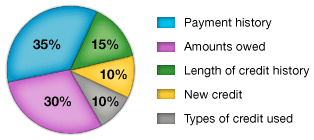A credit card I currently use offered me a credit limit increase. The current limit is $2500; I rarely spend over $500 on that card.
Let's say you have a legitimate reason for wanting more credit. My understanding is that requesting a credit limit increase and a new card both cause a hard pull. Since a lot of cards offer new sign up incentives, shouldn't you instead opt for one of those, assuming you can find an offer worth taking? Is there any advantage to getting a credit limit increase as opposed to getting a new card, assuming your current limit is already sufficient?

